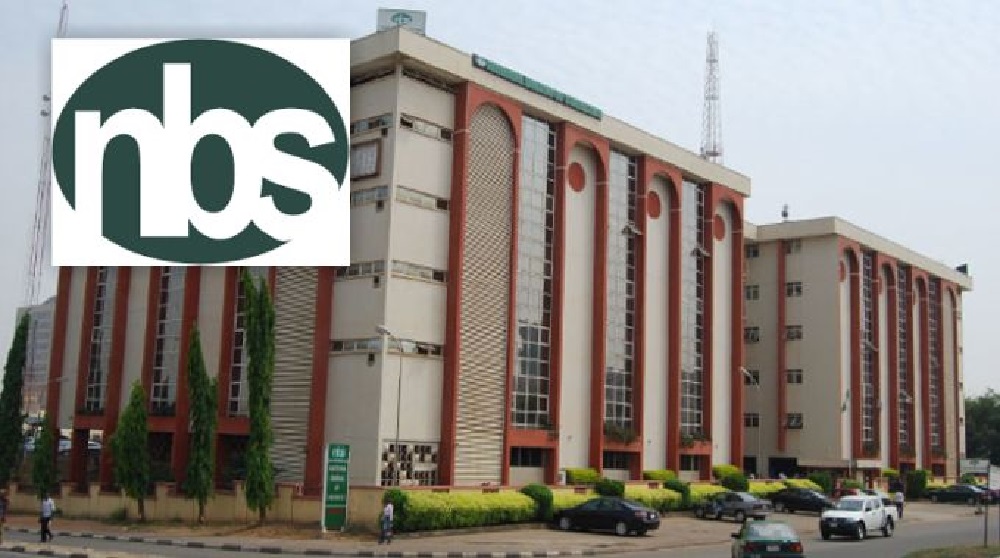Economy
SEE Black Market Dollar To Naira Exchange Rate Today 6 May 2024

Black market dollar to naira exchange rate today 6 May 2024 can be accessed below.
The official naira black market exchange rate in Nigeria today including the Black Market rates, Bureau De Change (BDC), and CBN rates. Please note that the exchange rate is subject to hourly fluctuations influenced by the supply and demand of dollars in the market. As of now, you can purchase 1 dollar at a certain rate now, however, it’s important to keep in mind that the rate can shift (either upwards or downwards) within hours.
What is the dollar to naira exchange rate today?
The local currency (abokiFx) opened at ₦1,435.00 per $1 at the parallel market otherwise known as the black market, today, Monday, 6 May 2024, in Lagos Nigeria, after it closed at ₦1,410.00 per $1 on Sunday, 5 May 2024.
Dollar to Naira (USD to NGN) Black Market Exchange Rate Today
Buying Rate ₦1,420
Selling Rate ₦1,435
How does the black market dollar-to-naira exchange rate compare to the official rate?
The official exchange rate of the US dollar to the Nigerian naira, as of today, 6 May 2024, is ₦ 1,383 per US dollar.
Date Currency Buying(NGN) Central(NGN) Selling(NGN)
5/3/2024 US DOLLAR 1382.065 1382.565 1383.065
5/3/2024 POUNDS STERLING 1734.3534 1734.9808 1735.6083
5/3/2024 EURO 1488.0694 1488.6077 1489.1461
5/3/2024 SWISS FRANC 1525.9633 1526.5154 1527.0675
5/3/2024 YEN 9.055 9.0583 9.0616
5/3/2024 CFA 2.1486 2.1586 2.1686
5/3/2024 WAUA 1751.4566 1752.0903 1752.7239
5/3/2024 RIYAL 368.4819 368.6152 368.7485
5/3/2024 DANISH KRONA 199.4552 199.5274 199.5995
5/3/2024 SDR 1821.6999 1822.3589 1823.018
This is the rate that the CBN uses for its transactions and interventions in the foreign exchange market. The official rate is also the basis for the exchange rates of other foreign currencies, such as the euro, the pound sterling, and the Chinese yuan.
The difference between the black market rate and the official rate is called the parallel market premium. The parallel market premium indicates the degree of divergence between the official and unofficial markets, and reflects the level of confidence in the naira and the CBN’s policies.
Factors Influencing Foreign Exchange Rates
Here are some of the causes of the dwindling dollar-to-naira exchange rate.
Inflation Rates: It is well known that inflation directly impacts black market exchange rates. If the Nigerian economy can be stabilized and inflation is controlled, the naira will benefit; however, if the naira continues to fall, it may indicate that food and other necessities are becoming more expensive daily.
Interest Rates: Another tool to keep an eye on is interest rates. If the interest rate at which banks lend money rises, it would harm the economy, causing it to contract and, as a result, the value of the naira to fall.
Government Debt: National debt can impact investor confidence and, as a result, the influx of funds into the economy. If inflows are high, the naira exchange rate will rise in favour of the naira.
Speculators: Speculators frequently impact the naira-to-dollar exchange rate. They stockpile money in anticipation of a gain, causing the naira to plummet even lower.
Conditions of Trade: Favorable trade terms will increase the value of the naira to the dollar, although Nigeria is currently experiencing a trade deficit. Everything comes from China, India, and the majority of Asian countries.
Economy
Nigeria’s international trade hit N36.6tn in Q4 2024 – NBS

Nigeria’s total merchandise trade recorded significant growth in the fourth quarter of 2024, driven by a sharp rise in imports and steady export performance.
According to the latest Foreign Trade in Goods Statistics report released by the National Bureau of Statistics on Saturday, total trade for the period stood at N36.6tn, representing a 68.3 per cent increase from the corresponding quarter in 2023 and a 2.2 per cent rise from the third quarter of 2024.
Despite maintaining a trade surplus, the country’s trade balance declined significantly.
The surplus for the quarter stood at N3.42tn, reflecting a 34.9 per cent drop from the previous quarter.
The decline was largely attributed to the continued increase in imports and a marginal drop in export earnings.
The NBS report stated, “Nigeria’s total merchandise trade stood at N36,604.83bn in Q4 2024. This represents an increase of 68.32 per cent compared to the value (N21,747.40bn) recorded in the corresponding period of 2023 and a rise of 2.20 per cent over the value recorded in the preceding quarter (N35,818.35bn).”
Total exports in Q4 2024 were valued at N20.01tn, marking a 57.7 per cent increase compared to the same period in 2023.
However, exports declined by 2.55 per cent from the N20.54tn recorded in the previous quarter
Crude oil continued to dominate Nigeria’s exports, accounting for 68.87 per cent of total exports with a value of N13.78tn.
This represented a 33.7 per cent increase from Q4 2023 and a 2.8 per cent rise from Q3 2024. Other key exports included liquefied natural gas, petroleum gases, superior quality cocoa beans, and urea, which contributed significantly to Nigeria’s non-oil export revenue.
The Netherlands emerged as Nigeria’s largest export destination, receiving N2.09tn worth of goods, representing 10.44 per cent of total exports.
France followed with N1.91tn, while Spain recorded N1.74tn. India and Indonesia were also among the top five export partners, with N1.60tn and N1.41tn in trade, respectively.
These five countries collectively accounted for 43.7 per cent of Nigeria’s total exports during the period.
Total imports in Q4 2024 rose sharply to N16.59tn, reflecting an 83.2 per cent increase from the N9.05tn recorded in Q4 2023. Compared to the previous quarter, imports increased by 8.57 per cent from N15.28tn.
However, mineral product imports declined, falling from N5.84tn in Q3 2024 to N4.92tn in Q4 2024, indicating a reduced reliance on imported mineral fuels.
Agricultural imports reached N1.09tn in Q4 2024, representing a 53.4 per cent rise from the same period in 2023.
Raw material imports surged to N2.11tn, marking a 118.2 per cent year-on-year increase. Manufactured goods imports recorded the highest growth, reaching N8.47tn, an increase of 113.3 per cent from Q4 2023.
China remained Nigeria’s top import source, accounting for N4.61tn or 27.8 per cent of total imports. India followed with N1.90tn, while Belgium, the United States, and France contributed N1.39tn, N1.06tn, and N601.28bn, respectively.
The agricultural sector recorded strong growth in Q4 2024, with total agricultural exports valued at N1.54tn, reflecting a 232 per cent increase from the same period in 2023.
Superior quality cocoa beans were the most exported agricultural product, accounting for N836.2bn.
Standard quality cocoa beans followed at N269.3bn, while sesamum seeds were valued at N202.9bn.
Other notable agricultural exports included natural cocoa butter at N104.6bn and shelled cashew nuts at N30.8bn.
Europe remained the dominant market for Nigeria’s agricultural exports, accounting for N986.7bn, while Asia received N474.4bn worth of agricultural products.
The Netherlands and Malaysia were the top buyers of Nigerian cocoa beans, while China and Japan imported significant quantities of sesamum seeds.
Total exports in the solid minerals sector were valued at N60.7bn, reflecting a 69.2 per cent increase year-on-year but a 21.9 per cent decline from Q3 2024.
Cement clinkers and tin ores were the dominant solid mineral exports, with major trading partners including Cameroon and China.
Imports of solid minerals, mainly plasters from Egypt and Tunisia, were valued at N111.8bn during the quarter.
Manufactured goods exports stood at N494.2bn, marking a 110.3 per cent increase year-on-year but a 52.5 per cent decline from Q3 2024.
The top manufactured goods exports included unwrought aluminum alloys, dredgers, and cathodes. Most of Nigeria’s manufactured goods exports were shipped to Africa, followed by Asia and Europe.
Meanwhile, manufactured goods imports surged to N8.47tn, with aircraft parts from France and photovoltaic cells from China among the most imported items.
Trade with African countries remained robust, with total exports valued at N2.04tn, while imports from the continent stood at N514.96bn, representing just 3.1 per cent of total imports. South Africa, Ivory Coast, and Senegal emerged as Nigeria’s top trading partners within Africa.
Within ECOWAS, Nigeria exported goods worth N1.18tn, while imports from the region were valued at N77.1bn. Ivory Coast ranked as Nigeria’s largest ECOWAS export destination, followed by Senegal, Togo, Ghana, and Benin Republic.
The most exported products to ECOWAS included petroleum oils, electrical energy, and cigarettes, while crude palm oil and petroleum bitumen were the most imported products from the region.
The report indicated that 98.8 per cent of Nigeria’s exports in Q4 2024 were transported by sea, with Apapa Port handling 89.6 per cent of total outbound shipments.
Air and road transport accounted for minimal shares of total exports. On the import side, maritime transport remained dominant, accounting for 90.2 per cent of inbound shipments. Apapa Port continued to serve as Nigeria’s major entry point for imports.
Economy
FG grants licenses for 3 new petroleum refineries

The Nigeria Midstream and Downstream Petroleum Resources Authority has issued refining licenses to three companies to build new refineries in Abia, Delta, and Edo States.
The three proposed refineries are expected to have a combined refining capacity of 140,000 barrels per day.
According to an X post by the NMDPRA on its official page, the proposed refineries that have issued licenses include:
Eghudu Refinery Ltd in Edo state issued a 100,000 bpd refining license.
MB Refinery and Petrochemicals Company Ltd in Delta State issued a License to establish a 30,000 bpd refinery.
HIS Refining and Petrochemical Company Ltd. in Abia state issued a license to establish a 10,000 bpd refinery.
The statement read: “The Authority Chief Executive, Engr. Farouk Ahmed presented a License to construct a 100,000 bpd refinery to Eghudu Refinery Ltd in Edo state, a License to establish a 30,000 bpd refinery to MB Refinery and Petrochemicals Company Ltd in Delta state, and a License to establish a 10,000 bpd refinery to HIS Refining and Petrochemical Company Ltd. in Abia state.
“These Licenses, which would add 140,000 barrels per day to Nigeria’s domestic refining capacity, were presented to the MDs of the companies.”
According to data from the Nigerian Upstream Petroleum Regulatory Commission (NUPRC), Nigeria has nine operational refineries, which include the Dangote Petroleum Refinery and Petrochemicals FZE, the Warri Refinery and Petrochemical Company, the Kaduna Refinery and Petrochemical Company, and the Port Harcourt Refinery Company Limited.
Others are the Aradel Refinery, OPAC Refineries, Waltersmith Refinery and Petrochemical Company, Duport Midstream Company Limited, and the Edo Refinery and Petrochemical Company.
These refineries have a combined refining capacity of 974,500 barrels per day, with the Dangote refinery having the largest capacity of 650,000 bpd. However, the majority of the refineries are not producing at full capacity.
According to the NUPRC, the nine refineries would require a combined daily crude supply of 770,500 bpd and 123,480,500 barrels in the first half of 2025.
This number is growing with more new refineries under construction and licensed by the NMDPRA.
Nairametrics reported that in January, the NMDPRA issued a license for the construction of a 10,000 bpd refinery in the Ughelli area of Delta State to MRO Energy Limited.
The growing number of refineries has positioned Nigeria as a major refining hub in Africa.
However, local refineries told Nairametrics that they struggle to secure crude locally despite assurances given by the Federal Government.
Credit: Nairametrics
Economy
Foreign reserves falls by $1.3bn, CBN confirms

Nigeria’s foreign exchange reserves fell by $1.31bn in February 2025, reflecting sustained external pressures amid the recent appreciation of the naira.
Data from the Central Bank of Nigeria showed that reserves declined from $39.72bn on January 31, 2025, to $38.42bn on February 28, 2025, representing a 3.3 per cent drop within the month.
The decline in February was slightly higher than the $1.16bn drop recorded in January, highlighting the continued strain on the country’s external reserves.
The steady depletion of reserves has raised concerns amid rising speculations that the apex bank’s sustained interventions in the foreign exchange market, aimed at bridging liquidity gaps and stabilising the naira, have come at the cost of reducing external reserves.
Despite this, the local currency strengthened significantly against major foreign currencies in February, suggesting that the CBN’s efforts have had some positive impact in restoring confidence in the market.
Nigeria’s reserves recorded a consistent decline throughout February, with no single day of increase.
At the beginning of the month, reserves stood at $39.60bn on February 3, dropping to $39.54bn on February 4, signalling the start of a downward trend.
By February 7, reserves had fallen to $39.04bn, slipping further to $39.27bn on February 10.
The downward trajectory persisted into the second week of the month, with reserves standing at $39.15bn on February 12 and declining to $38.88bn by February 17.
By the third week of February, reserves had weakened further, dropping to $38.72bn on February 19 and $38.69bn on February 21.
As the month drew to a close, reserves had further declined to $38.41bn on February 28, reflecting a continuous downward trend throughout the month.
The fall in reserves has been attributed to multiple factors, including Nigeria’s heavy dependence on imports, which exerts pressure on foreign exchange reserves.
The country remains highly reliant on imports of industrial goods and food supplies, leading to high FX outflows.
Although oil prices have rebounded in recent months, Nigeria’s oil production challenges, crude theft, and pipeline vandalism have constrained forex inflows from the oil sector, limiting the CBN’s ability to shore up reserves.
The depletion of external reserves has also raised concerns over Nigeria’s capacity to meet external debt obligations.
The country holds significant foreign debt, and a further decline in reserves could weaken its ability to make timely debt repayments, potentially increasing borrowing costs.
A lower reserve level could also affect Nigeria’s credit rating and investor confidence, making it more expensive for the government to access international capital markets.
Despite the steady decline in reserves, the naira made notable gains against major foreign currencies in February, marking its strongest performance since the beginning of the year.
By the end of the month, the naira appreciated against the US dollar, closing at N1,540/$ from N1,620/$ at the start of the month, reflecting a 7.41 per cent gain.
It also strengthened against the British pound, rising from N2,000/£ to N1,910/£, marking a 4.50 per cent increase. Similarly, the naira appreciated against the euro, improving from N1,660/€ to N1,550/€, showing a 6.34 per cent gain.
The official exchange rate followed a similar trend, stabilising above N1,500/$ in the final weeks of February.
Data from the Nigerian Autonomous Foreign Exchange Market showed that the naira closed at N1,496/$ at the official window, narrowing the gap between the official and parallel market rates.
The convergence of the official and parallel market exchange rates indicates that Nigeria may be moving towards a unified forex market, reducing the speculation and arbitrage that have previously contributed to forex volatility.
-

 News4 hours ago
News4 hours agoPastor Adeboye narrates how he collapsed in Ilesha
-

 News11 hours ago
News11 hours agoJust in: Dickson, opposition lawmakers throw weight behind suspended Senator Natasha
-

 Economy9 hours ago
Economy9 hours agoFG grants licenses for 3 new petroleum refineries
-

 News20 hours ago
News20 hours agoAnother Tanker Explosion Rocks Niger State, seven casualties recorded
-

 Economy9 hours ago
Economy9 hours agoNigeria’s international trade hit N36.6tn in Q4 2024 – NBS
-

 News21 hours ago
News21 hours agoYou look very ugly, Ronaldo tells lookalike fan
-

 News20 hours ago
News20 hours agoEPL:How Hudson-Odoi late move sank Man City
-

 News20 hours ago
News20 hours agoGaza: Protesters deface Trump’s Scotland Golf Resort





